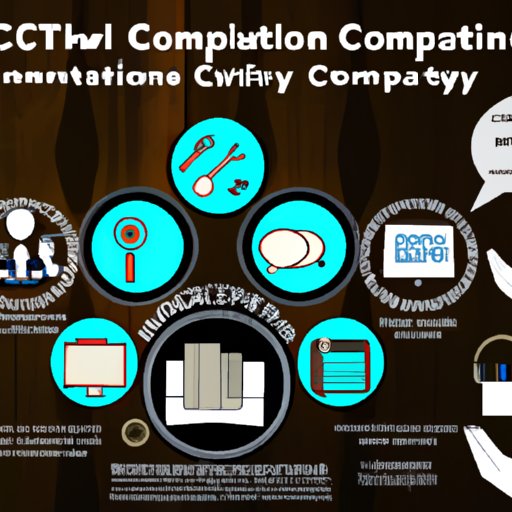Introduction
Technology consultants specialize in helping organizations and businesses make the most effective use of their technology resources. They act as advisors and provide insights, guidance, and strategies for improving technology systems and procedures. In order to do this, they must possess a high level of knowledge and expertise in a variety of areas, such as software development, networking, and security.
Definition of Technology Consulting
According to the National Institute of Standards and Technology (NIST), technology consulting is “the practice of providing professional services related to the evaluation, selection, implementation, operation, and maintenance of technology systems.” In other words, technology consultants are hired by organizations or businesses to help them make informed decisions about their technology investments, as well as assist with the implementation and management of those investments.
Overview of the Role of a Technology Consultant
The role of a technology consultant is to analyze customer needs and develop solutions that meet those needs. They must be able to identify areas where existing technologies can be improved, as well as suggest new technologies that could benefit the organization. Technology consultants also need to have a thorough understanding of the changing landscape of technology, so that they can keep up with new trends and technologies.
Interviewing a Technology Consultant
When selecting a technology consultant, it is important to consider the individual’s qualifications, experience, and expertise. It is also important to ask the right questions during the interview process in order to determine if the consultant is a good fit for the job. Questions should focus on the consultant’s technical skills, as well as their ability to work with different types of people and within different organizational structures.
Exploring Career Paths in Technology Consulting
In order to become a successful technology consultant, individuals must have a strong educational background in computer science, information technology, networking, or related fields. Many technology consultants also pursue certifications in specific areas of expertise. According to the Bureau of Labor Statistics, the median annual salary for technology consultants is $90,270, and they often receive additional benefits such as health insurance and paid vacation time.

Examining the Role of a Technology Consultant
The primary responsibility of a technology consultant is to provide clients with solutions that meet their needs. This includes conducting research and analysis to understand customer requirements, evaluating current IT systems, and recommending solutions that will improve efficiency and reduce costs. Technology consultants must also be able to communicate effectively with both technical and non-technical personnel in order to ensure that their solutions are implemented correctly.
Comparing Technology Consulting to Other IT Occupations
Technology consulting is similar to other IT occupations in that it requires a strong knowledge of computers and networking. However, there are some key differences between these two positions. Technology consultants focus more on providing advice and guidance to customers, while other IT positions typically involve more hands-on tasks such as system installation and maintenance. Additionally, technology consultants often have more flexibility in terms of working hours and locations, as they may be required to travel to different sites to meet with clients.

Analyzing the Benefits of Hiring a Technology Consultant
Hiring a professional technology consultant can bring numerous benefits to an organization or business. Experienced consultants can offer valuable insight into the latest technologies and trends, as well as provide advice on how to best utilize existing resources. These professionals can also help streamline processes and increase efficiency, which can lead to cost savings in the long run.

Understanding the Challenges of Being a Technology Consultant
Being a technology consultant can be both rewarding and challenging. The biggest challenge is meeting customer expectations, as consultants must often juggle multiple projects and deadlines. Additionally, technology is constantly evolving, and consultants must stay up to date on the latest developments in order to be successful.
Conclusion
Technology consultants play an important role in helping organizations and businesses make the most out of their technology investments. They provide advice and expertise on how best to utilize existing resources, as well as recommend new solutions that can improve efficiency and reduce costs. Technology consultants must possess a high level of knowledge and expertise in order to be successful, and they must also stay up to date on the latest trends and developments in the field. Working with an experienced professional can bring numerous benefits to an organization, and can ultimately lead to improved efficiency and cost savings.
(Note: Is this article not meeting your expectations? Do you have knowledge or insights to share? Unlock new opportunities and expand your reach by joining our authors team. Click Registration to join us and share your expertise with our readers.)
